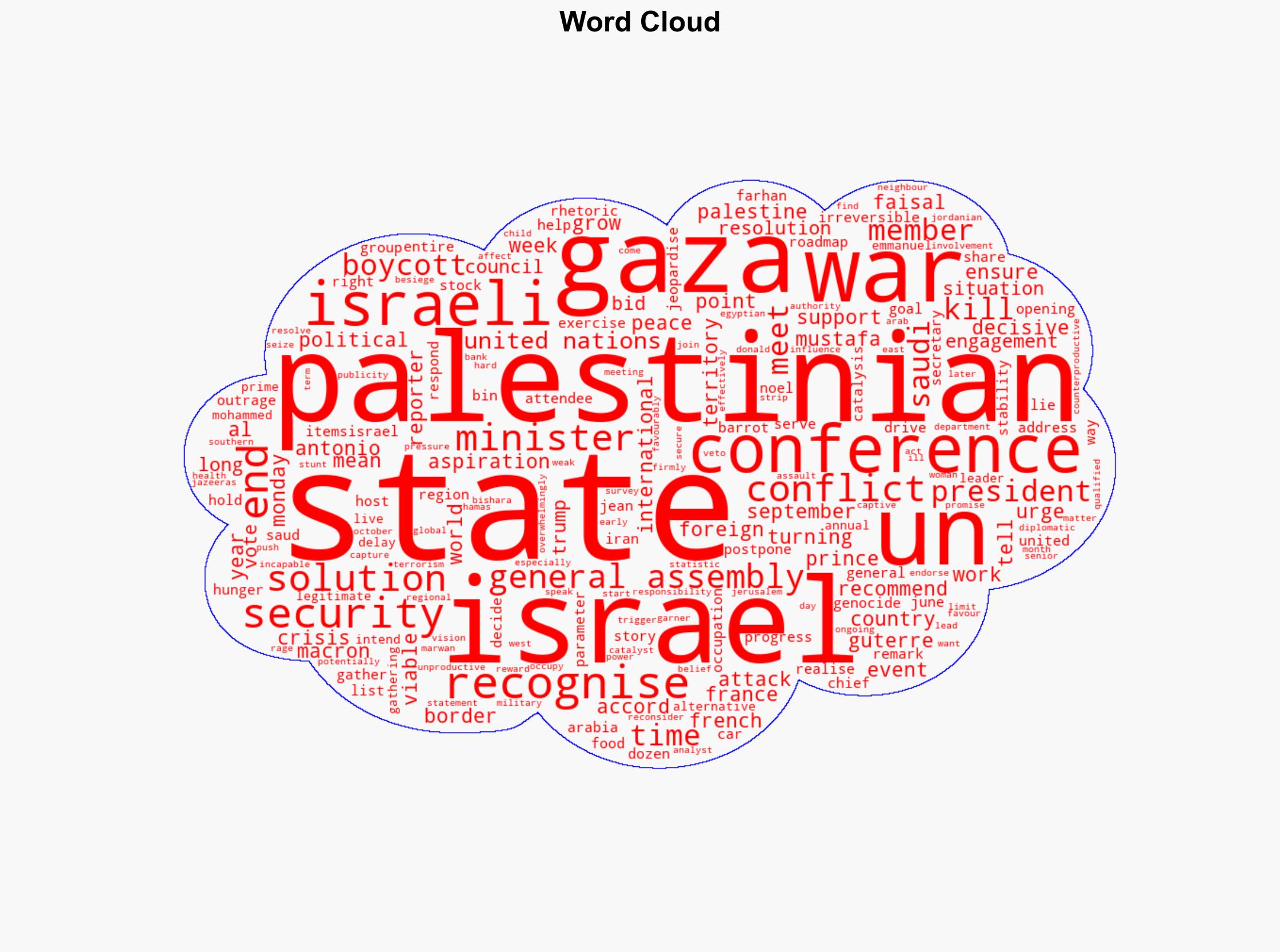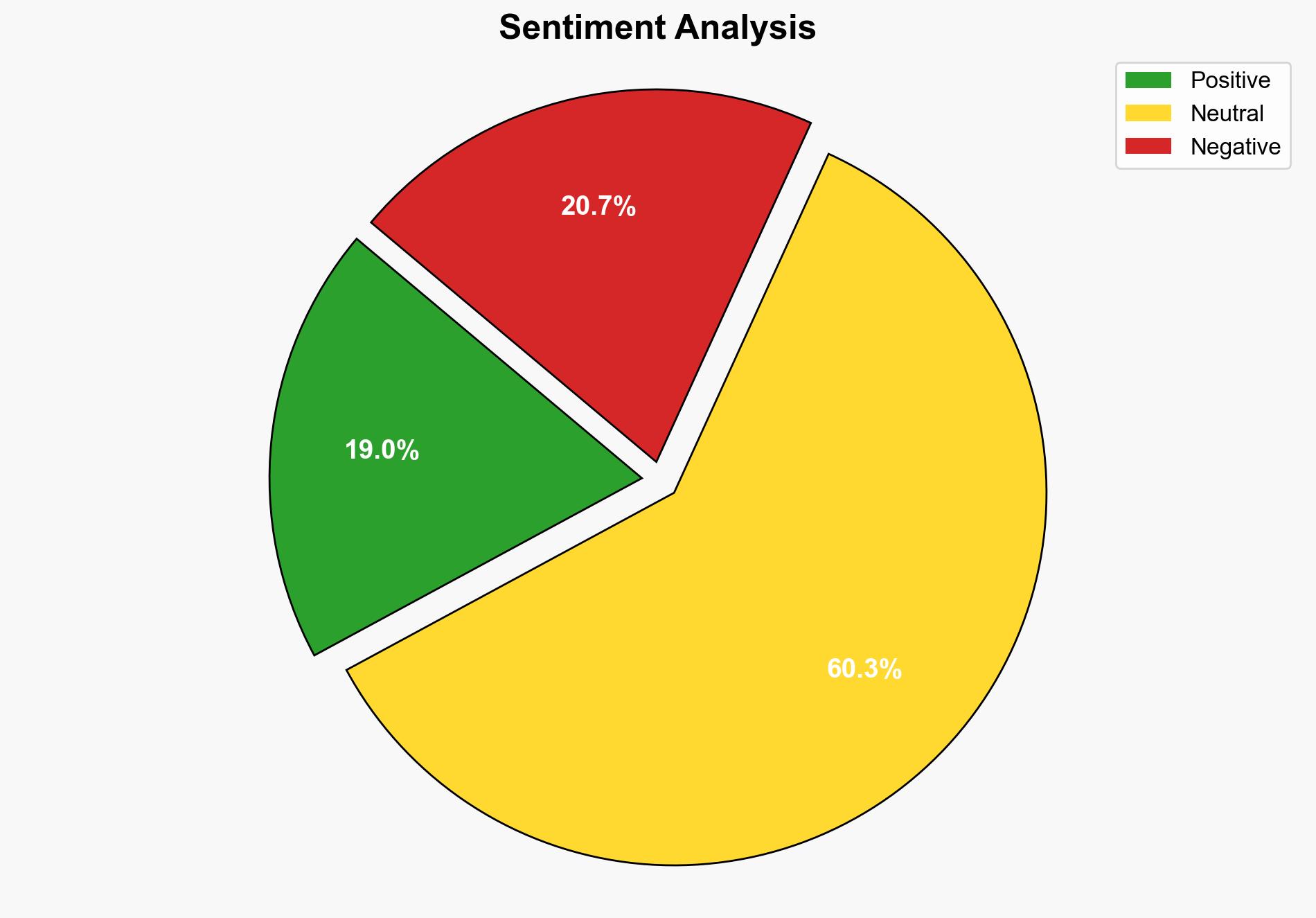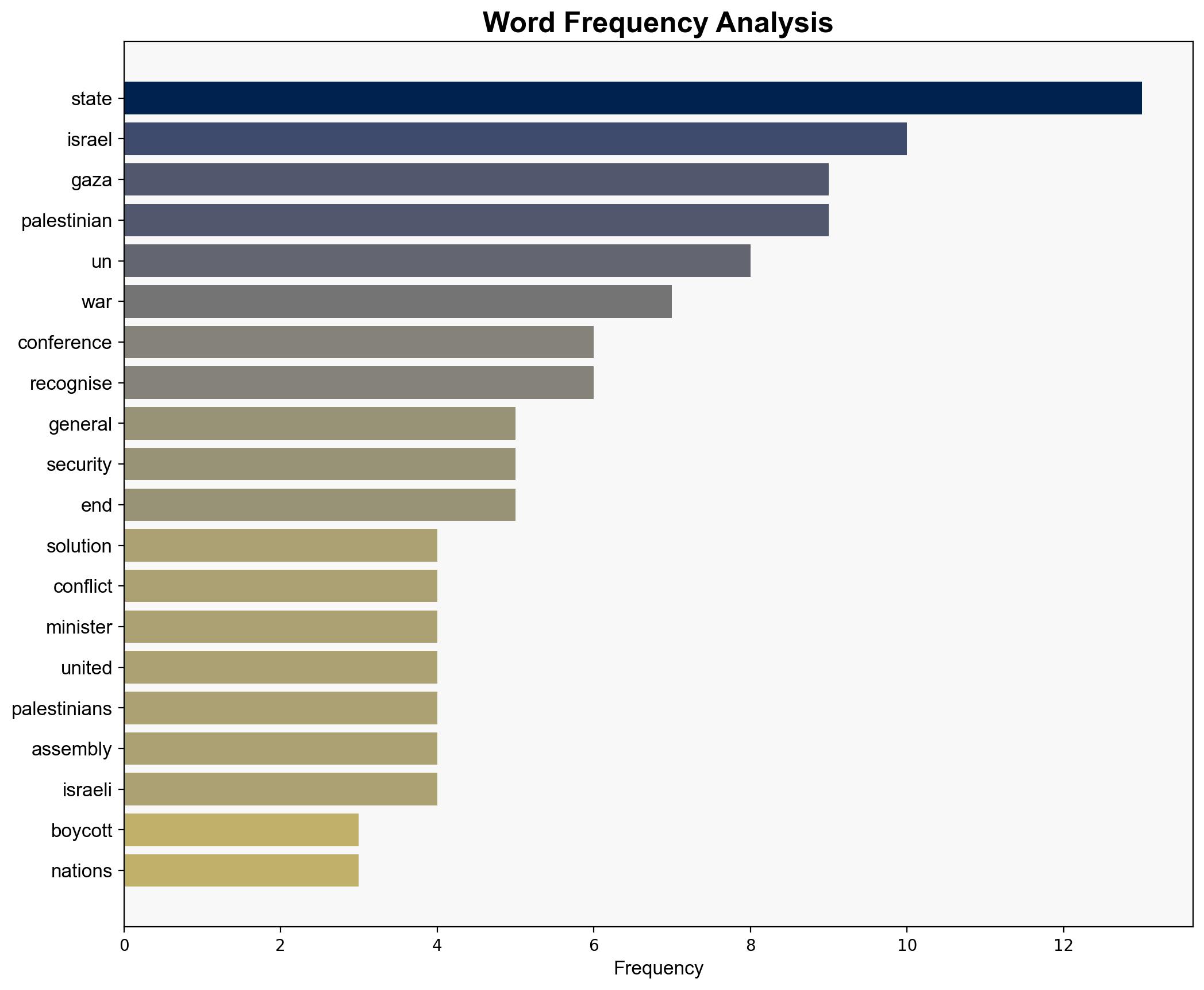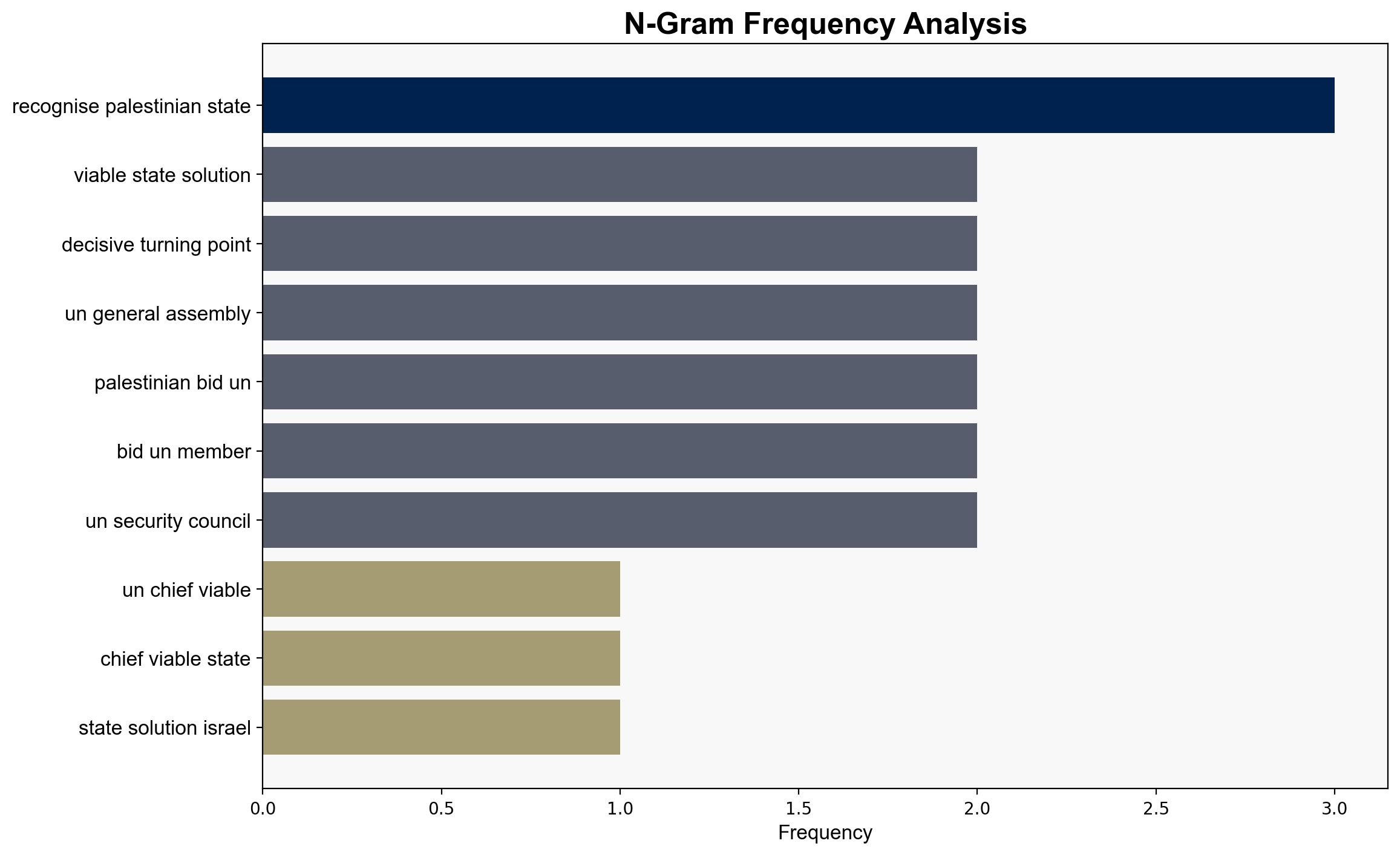UN chief calls for viable two-state solution to Israel-Palestine conflict – Al Jazeera English
Published on: 2025-07-28
Intelligence Report: UN chief calls for viable two-state solution to Israel-Palestine conflict – Al Jazeera English
1. BLUF (Bottom Line Up Front)
The most supported hypothesis is that international diplomatic efforts, including those led by the UN and France, are unlikely to achieve a viable two-state solution in the short term due to entrenched geopolitical dynamics and lack of consensus among key stakeholders. Confidence level: Moderate. Recommended action includes fostering multilateral dialogue and leveraging regional powers to mediate and de-escalate tensions.
2. Competing Hypotheses
1. **Hypothesis A**: The UN and allied international efforts will catalyze a decisive turning point, leading to a viable two-state solution. This is supported by the active participation of multiple countries and the UN’s historical endorsement of a two-state vision.
2. **Hypothesis B**: Despite international efforts, entrenched political and military realities will prevent meaningful progress towards a two-state solution. This is supported by Israel’s boycott of the conference, ongoing military actions, and the lack of engagement from key regional actors.
Using the Analysis of Competing Hypotheses (ACH) 2.0, Hypothesis B is better supported due to the current geopolitical climate and historical precedents of stalled peace processes.
3. Key Assumptions and Red Flags
– **Assumptions**: Both hypotheses assume that international diplomatic pressure can influence the internal policies of Israel and Palestine. Hypothesis A assumes a willingness of regional powers to engage constructively.
– **Red Flags**: Israel’s boycott of the conference and the ongoing military conflict in Gaza highlight potential blind spots in diplomatic strategies. The lack of a unified stance among regional powers is a significant obstacle.
– **Deception Indicators**: Statements from various leaders may serve domestic political agendas rather than genuine diplomatic intentions.
4. Implications and Strategic Risks
– **Geopolitical Risks**: Continued conflict could destabilize the region further, impacting neighboring countries and potentially drawing in external powers.
– **Economic Risks**: Prolonged instability may disrupt regional trade and economic growth, exacerbating humanitarian crises.
– **Psychological Risks**: Ongoing violence may fuel radicalization and undermine moderate voices within both Israeli and Palestinian societies.
5. Recommendations and Outlook
- Encourage multilateral dialogue involving regional powers like Saudi Arabia and Egypt to mediate and de-escalate tensions.
- Scenario-based projections:
- **Best Case**: Successful mediation leads to a ceasefire and renewed peace talks.
- **Worst Case**: Escalation of violence leads to broader regional conflict.
- **Most Likely**: Continued stalemate with intermittent violence and diplomatic efforts.
6. Key Individuals and Entities
– Antonio Guterres
– Jean-Noel Barrot
– Emmanuel Macron
– Mohammed Mustafa
– Prince Faisal bin Farhan Al Saud
7. Thematic Tags
national security threats, regional focus, geopolitical dynamics, conflict resolution





